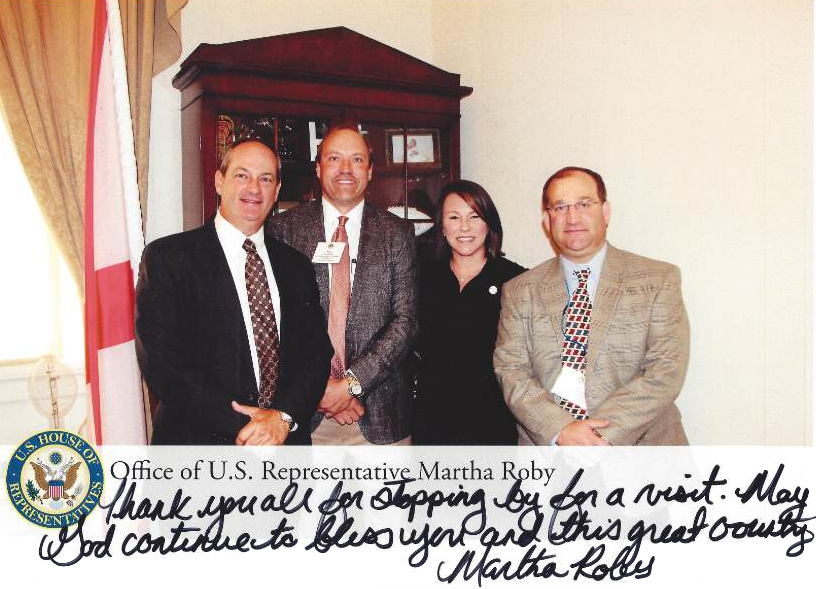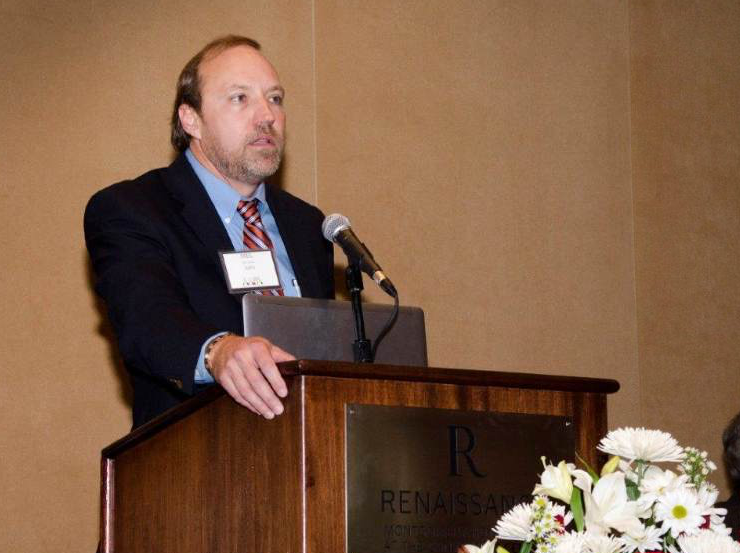Meet the State Exec: Mel A. Monk
BY AsphaltPro Staff


We continue the introduction to state asphalt pavement association (SAPA) executive directors with Alabama’s Mel A. Monk. Working with the Alabama Department of Transportation (ALDOT), the National Center for Asphalt Technology (NCAT), various universities, and 90 percent of the asphalt industry in his state, Monk is waving the asphalt banner to keep skilled workers flowing in and to bring our positive story of sustainability and economic prosperity to the elected budget-setters who need to hear it.
State Association:
Alabama Asphalt Pavement Association (AAPA), Montgomery, Ala.
How long have you been in the asphalt industry?
23 years
Do you have a degree related to the industry?
Yes, Bachelor of Civil Engineering from Auburn University. I got an early introduction to the asphalt industry during college. I was able to work two summers for an asphalt contractor—Couch, Inc.—in their lab, and one summer at NCAT working in their lab. This practical work experience helped in my classes at Auburn and served as good knowledge base for future jobs.
How long have you been the executive director of your state association?
13 years
In what year was your state association formed?
1959

How many producer and/or contractor members are in your state association?
16 (about 90%)
What are the top two or three ways you have increased membership in the association?
• Contractor members recruiting their subcontractors, vendors and suppliers to join the association
• Member discounts for training, seminars, etc.
• Personal recruitment of prospective members and detailing the benefits of association membership; stressing that there is strength in numbers in speaking with one voice on technical issues and funding issues
What is your favorite method for recruiting new asphalt professionals to the industry in general?
I am invited to speak several times a year to engineering students at Auburn University, University of Alabama—Birmingham, and University of South Alabama. I discuss the basics of asphalt technology and asphalt industry in general. I have later met several of these students in industry-related jobs who remembered me speaking to their class several years earlier. Several contractors hire students for summer jobs and several contractors host plant tours for local college engineering students. This is all positive exposure for young people to our industry.
In what month do you hold your annual meeting?
We hold our annual convention in May, our annual technical conference in March and our annual paving awards luncheon in December.
Do you have a staff that assists in preparing the annual meeting?
Yes; the office manager and myself.
Does your staff hold educational seminars or webinars for members separate from the annual meeting/convention(s) throughout the year?
Yes. We conduct upper level training for our asphalt personnel every March and April. The training is part of an ALDOT technician certification program. The training is two classes of about a week each. One is “Asphalt Mix Design Training and Certification” for our industry personnel involved in designing asphalt mixes. The other is “Asphalt Plant Operations” for our industry personnel involved in the operation of an asphalt plant to produce quality asphalt mixes within agency specification parameters.
About how many member asphalt projects do you visit per year/paving season?
35—This includes taking our paving awards team to perform their project evaluations.
About how many member asphalt plant tours do you assist/are you a part of per year?
3
About how many member asphalt open house events do you attend per year?
1
About how many state agency or DOT meetings do you attend per year?
3—ALDOT normally has an annual conference for pre-construction personnel, maintenance personnel and construction/materials personnel. We also have several yearly liaison committee meetings between AAPA personnel and our industry partners at ALDOT.
On a scale of 1 to 5 (1 being none at all; 5 being very much), how much of a threat to your members’ marketshare/livelihood is the concrete industry in your state?
4
Could you share an example/anecdote of a time when the concrete industry encroached on the asphalt marketplace in your state?
About 6 to 7 years ago, we lost two interstate maintenance projects to concrete. We won the engineering and LCCA battle, but lost the political battle. We have fought off several attempts by the concrete/cement industry to pass legislation to dictate how ALDOT chooses pavement types. ALDOT engineers are fully qualified to select and design pavement types without legislative directives or mandates. We believe pavement type selection should always be an engineering decision and not a political decision.
On a scale of 1 to 5 (1 being none at all; 5 being very much), how much difficulty are your members having in finding qualified workers for their asphalt paving or production crews?
4
On a scale of 1 to 5 (1 being none at all; 5 being very much), how involved are your state elected officials in transportation issues such as funding and infrastructure improvements?
4—Our state elected officials are becoming more aware every day of our pressing funding needs. A few years ago our current Gov. Robert Bentley authorized a program named ATRIP to use Garvee bonds to fund approximately $1 billion of infrastructure improvements on our county and city road and bridge network. Discussions are now focused on how to address needs on our state-maintained (ALDOT) infrastructure network.
On a scale of 1 to 5 (1 being none at all; 5 being very much), how involved are your asphalt members in transportation issues such as funding and infrastructure improvements?
5—Increased funding is a top priority for all of our members. The funding for ALDOT, counties and cities is totally insufficient to maintain the current and future needs of our infrastructure system. ALDOT has approximately a $3 billion backlog of needed construction projects that can’t be funded. Education of elected officials and the general public on the need for increased transportation funding is an ongoing process. It is impossible to overstate the importance of this continuing effort.
Could you share an example of a time when your state APA hosted elected officials to educate them?
Over the years, we have hosted elected officials to several of our contractor asphalt plants, and on one occasion to NCAT. Each time our elected officials are amazed and impressed by the economic impact our industry has on their district, including the value of our equipment, the tax dollars paid and the number of employees. Officials are also very impressed with our commitment to sustainability through the use of RAP and RAS. Our industry has a great story to tell and hopefully we are getting better at telling it.
Why (or how) did you join the asphalt industry?
I worked for more than 10 years with ALDOT in the Mobile area in various construction and materials position. I was approached by the local asphalt contractor to see if I was interested in interviewing for the open AAPA executive director position. I interviewed and was hired and am now blessed to work for the best group of folks in the greatest industry around.
What do you see as the most important part of your job as an executive director of a SAPA?
Relationships with people. Developing positive and productive relationships with contractors, subcontractors, vendors, suppliers, ALDOT, counties, cities, consulting engineers, elected officials, etc. Building a partnership and a trust with all of these groups and individuals to provide quality asphalt pavement to the taxpayers of Alabama.
What do you find most enjoyable about your job as an executive director of a SAPA?
Having a job that is a pleasure to come to work every day. Each day is different and you never know what a call or contact is going to bring. There is never a boring day or a lack of goals to accomplish. I am honored to be able to tell the story of the asphalt pavement industry to all who will listen. I am truly very blessed to have a job that I love.
What has been the most rewarding experience for you during your time as the executive director?
Seeing the results of the hard work by the AAPA and its members. Working with our partners at ALDOT to develop and revise specifications and procedures to maintain and improve the quality of HMA. Then going out to actual projects and seeing quality work that has made roadways smoother and safer for the traveling public. Knowing that our industry positively affects the daily lives of all Alabamians. I am impressed every day by the honesty, integrity, hard work and commitment to quality by our contractors and other industry partners.
